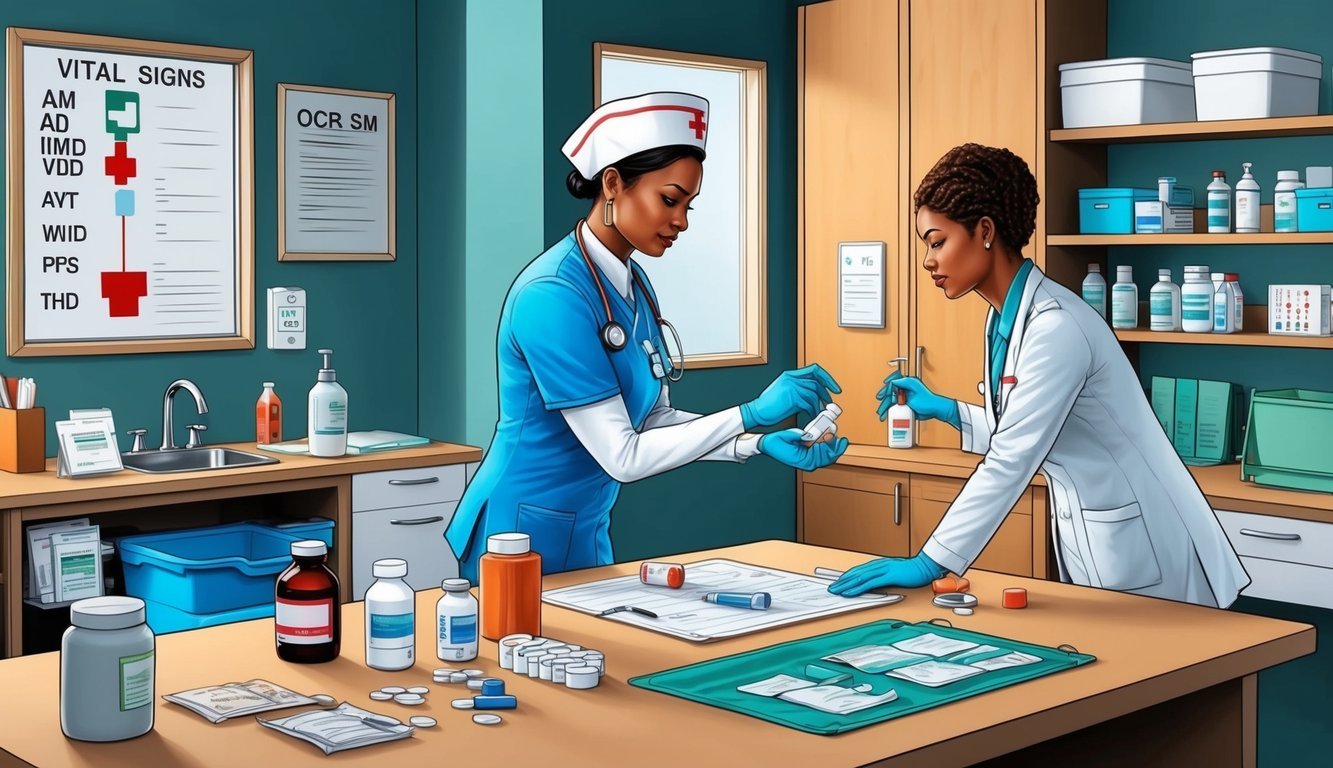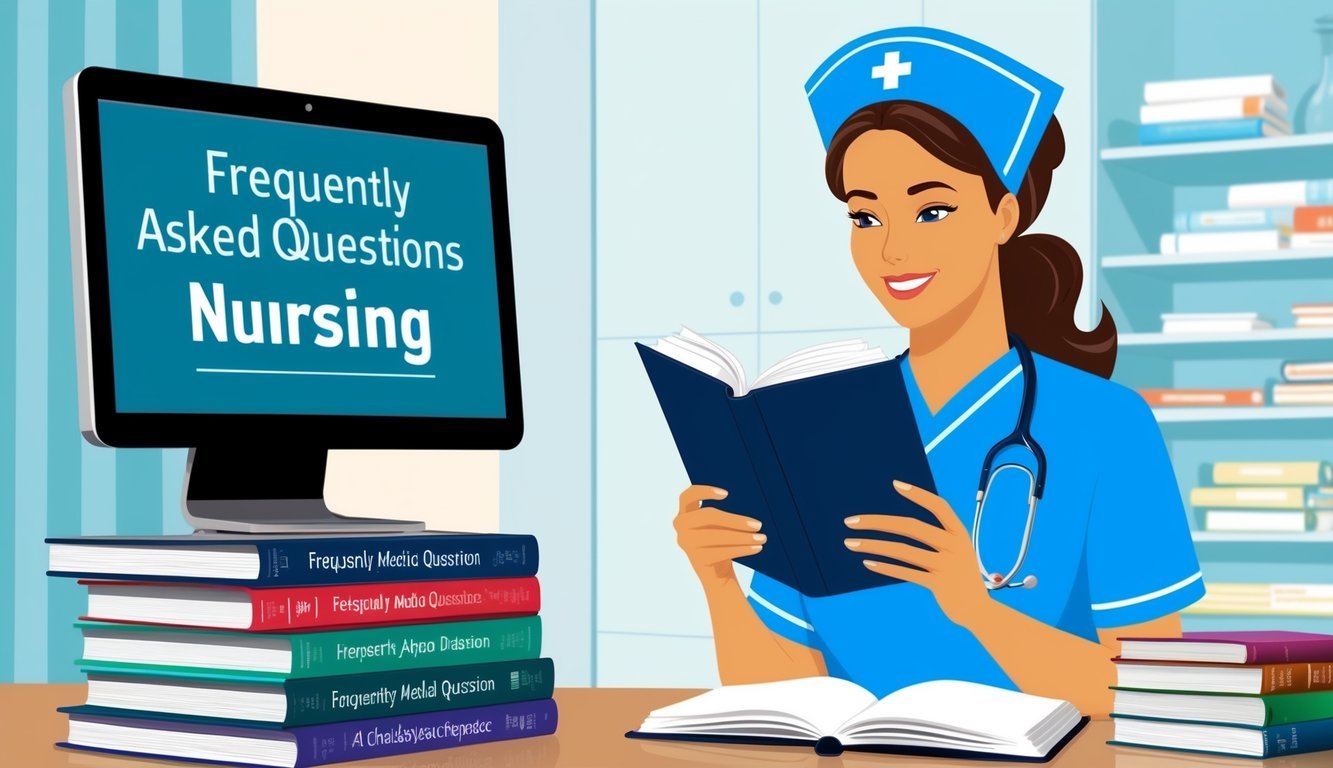Being a nurse is both rewarding and challenging.
To thrive in this profession, you need a mix of skills, knowledge, and a compassionate approach.
To be a better nurse, you must focus on effective communication, continuous learning, and personal well-being.
These elements are essential not just for your growth, but also for delivering the best care to your patients.
In the fast-paced world of healthcare, building relationships with patients and the healthcare team is crucial.
Strong communication can lead to better patient outcomes and a more supportive work environment.
Additionally, investing in your own professional development and mental health will keep you resilient and passionate about your work.
Embracing a holistic approach will greatly enhance your nursing practice.
By developing your core skills and seeking mentorship, you can navigate your nursing career with confidence and care.
Key Takeaways
- Focus on building strong communication skills for effective patient interaction.
- Pursue continuous education and certifications to enhance your nursing practice.
- Prioritize self-care to maintain your personal well-being and professional effectiveness.
Educational Pathways and Certifications
Investing in your education and certifications is crucial for your growth as a nurse.
The right pathways can enhance your skills and expand your career opportunities.
Understanding nursing degrees, licensing requirements, and continuing education options will help you advance in your nursing practice.
Nursing Education and Degrees
To become a nurse, you can choose between various educational pathways.
Common options include:
| Degree Type | Duration | Description |
|---|---|---|
| Associate Degree in Nursing (ADN) | 2 years | Typically offered by community colleges. |
| Bachelor of Science in Nursing (BSN) | 4 years | A more extensive program that prepares you for leadership roles. |
Each nursing degree prepares you for the NCLEX-RN exam, which you must pass to obtain your RN license.
A BSN is often preferred, especially in hospitals and healthcare settings focused on evidence-based practice.
For more information on nursing education, visit Nursing Process.
Licensing and Continuing Education
After completing your degree, passing the NCLEX is essential to become a licensed nurse.
Each state has its requirements for licensure, so be sure to check your local regulations.
Once licensed, continuing education is important to keep your skills current and meet state requirements.
This can include:
- Certification courses in specialized fields.
- Attending workshops and seminars.
- Online continuing education courses.
Staying informed about trends and advances in nursing practice will enhance your ability to provide quality patient care.
For more on continuing education options, visit Nurse.com.
Core Nursing Skills

To excel as a nurse, you need a strong foundation in various core skills.
Two of the most critical areas include clinical expertise related to medication administration and the ability to think critically and solve problems effectively.
Clinical Expertise and Medication Administration
In nursing practice, having clinical expertise, especially in medication administration, is crucial.
You must understand various medications, including their effects, side effects, and interactions.
Proper administration techniques ensure patient safety.
Key aspects to focus on include:
- Dosage Calculation: Always double-check dosages to prevent errors.
- Patient Education: Inform patients about their medications, including how to take them and potential side effects.
- Documentation: Accurately document each medication given, including the time and any patient reactions.
Effective medication administration can lead to better patient outcomes.
Learn about the different types of medications and the latest practices by visiting Nurse.org.
Critical Thinking and Problem-Solving
Critical thinking is essential in nursing, as it enables you to analyze situations and make informed decisions.
When faced with unexpected challenges, your problem-solving skills will directly affect patient care.
Important strategies include:
- Assessment: Gather all relevant information before making a decision.
- Prioritization: Identify what needs immediate attention and what can wait.
- Collaboration: Work with your healthcare team to develop solutions.
Utilizing these skills helps you respond effectively in high-pressure situations.
Strengthen these abilities through practice and by referring to resources like NursingProcess.org.
Communication and Interpersonal Skills
Effective communication and strong interpersonal skills are vital in nursing.
You must connect with patients and their families while working as part of a healthcare team.
Being skilled in these areas enhances patient care and promotes a supportive environment.
Effective Communication and Active Listening
Effective communication involves clear and concise exchanges of information.
This includes the use of the SBAR method (Situation, Background, Assessment, Recommendation) to provide structured communication with your peers.
Key aspects of effective communication:
- Clarity: Use simple language that patients can understand.
- Empathy: Show genuine concern and understanding of patient emotions.
- Feedback: Encourage questions to ensure patient comprehension.
Active listening is equally crucial.
When you focus fully on the speaker, you show respect and promote trust.
This means:
- Maintaining eye contact.
- Nodding to show understanding.
- Paraphrasing to confirm information.
By practicing these skills, you can create a positive experience for patients and colleagues.
Patient Education and Advocacy
Patient education involves informing patients about their health conditions and treatment options.
A well-informed patient can make better decisions about their care.
Use these techniques:
- Visual Aids: Charts and diagrams can help clarify complex topics.
- Teach-Back Method: Ask patients to explain back what they’ve learned. This confirms their understanding.
Advocacy is another critical role.
You often represent your patients’ needs and preferences.
Be proactive by:
- Listening to patients’ concerns.
- Communicating their wishes to the healthcare team.
By enhancing your education and advocacy efforts, you empower patients to take an active role in their care.
This leads to better health outcomes and fosters trust.
For additional tips on communication skills, consider visiting NursingEducation.
Professional Development and Mentorship
Focusing on your professional growth and seeking mentorship can significantly advance your nursing career.
Both elements are essential for gaining new skills and knowledge while navigating your journey in healthcare.
Career Growth and Nursing Specialties
To foster your career growth, consider exploring various nursing specialties.
Identifying areas of interest can help you tailor your professional development.
Here are some key nursing specialties you might explore:
| Specialty | Description | Key Skills |
|---|---|---|
| Critical Care Nursing | Caring for patients with severe conditions | Advanced assessment, resilience |
| Pediatric Nursing | Working with children | Patience, communication |
| Geriatric Nursing | Focusing on the elderly | Empathy, specialized knowledge |
| Nurse Practitioner | Providing primary and specialized care | Autonomy, advanced practice |
Engaging in specialized training or certifications can make your resume stronger.
Online resources like the American Nurses Association offer valuable information on certifications and skills required for different specialties.
Importance of Mentorship in Nursing
Mentorship plays a crucial role in your professional development.
Having a mentor can provide guidance, support, and valuable insights into the nursing field.
Here’s how mentorship can benefit you:
- Skill Development: A mentor can help you improve your clinical and communication skills.
- Networking Opportunities: Mentors often introduce you to professional networks, enhancing your connections in the healthcare community.
- Navigating Challenges: Mentors share their experiences, helping you develop resilience and strategize around challenges.
Establishing a strong mentorship relationship requires initiative from both you and your mentor.
Be open about your goals and seek feedback to ensure continuous growth.
For more tips on effective mentorship, visit NurseJournal.
Personal Well-being and Self-care
Taking care of yourself is essential for being a better nurse.
Self-care helps you recharge and improves your ability to provide quality care.
Key Areas of Self-care
| Area | Tips |
|---|---|
| Time Management | Prioritize tasks. Use tools like planners or apps to organize your day. |
| Stress Management | Practice relaxation techniques. Breathing exercises or short breaks can reduce stress. |
| Healthy Lifestyle | Eat balanced meals, exercise regularly, and get enough sleep. Nourishing your body supports your mind. |
Self-care Strategies
- Set boundaries: Know your limits. Avoid taking on too many responsibilities.
- Take breaks: Even short pauses during your shift can help you reset.
- Stay connected: Talk to colleagues or friends. Sharing experiences can lighten your burden.
Self-care is not selfish; it allows you to provide the best care for your patients.
Remember, you can’t pour from an empty cup.
Learn more about self-care for nurses to implement these strategies effectively.
Frequently Asked Questions

Improving your nursing skills and effectiveness involves understanding key strategies and recognizing areas for growth.
Here are some common questions that can guide you in enhancing your nursing practice.
What strategies can nurses employ to enhance their professional skills?
You can enhance your skills through focused training, mentorship, and hands-on practice.
Engaging in workshops and certification programs can keep you updated on the latest nursing practices.
Networking with other professionals can also provide insights and knowledge sharing opportunities.
What are some common strengths and weaknesses in the nursing profession?
Common strengths include empathy, strong communication, and adaptability.
Weaknesses might involve time management and emotional stress handling.
Recognizing these can help you focus on areas that require improvement and leverage your strengths effectively.
Which five fundamental qualities are essential in nursing?
Essential qualities include:
| Quality | Description |
|---|---|
| Compassion | Caring deeply for patients’ well-being. |
| Communication | Clearly conveying information and listening. |
| Critical thinking | Making informed decisions in patient care. |
| Resilience | Bouncing back from stressful situations. |
| Teamwork | Collaborating effectively with other staff. |
In what ways can a nurse identify and work on areas of improvement?
You can identify areas for improvement through self-reflection and feedback from peers.
Regularly assessing your performance can highlight specific skills to develop.
Setting personal goals and seeking guidance from mentors can also facilitate growth.
How can ongoing education contribute to nursing excellence?
Ongoing education keeps your skills current and enhances your knowledge base.
Pursuing advanced degrees or specialized certifications can lead to better job performance and patient care outcomes.
Staying informed about healthcare advancements helps you adapt quickly to new information.
What techniques can be implemented to strengthen nurse-patient communication?
Techniques include active listening, using simple language, and ensuring patient understanding.
Establishing trust through consistent eye contact and a warm demeanor can also improve interactions.
Encourage patients to express their concerns, which fosters open dialogue and better care.

